- Also Known As
- Ziegelei Polenzwerder, Gut Polenzwerder
- Type of Hakhshara
- regular Hakhshara
- Founded
- 1937
- Opened
- July 1937
- Closed
- June 30, 1941
- Operating Area
-
16.25 hectare65 acres with arable land, meadows, pastures, woodlands, water areas and buildings
- Areas of Training Offered
-
horticulture, agriculture, animal husbandrygardening (fruits, vegetables); arable farming (grain, potatoes, carrots, cabbage); livestock farming (cattle, horses), poultry farming (chickens)
- Description
-
The Polenzwerder estate was purchased by the brothers Julius and Gustav Meyer in 1923 and used as both a brick factory and a working farm. The brick factory ceased operations starting in 1932; afterwards, Polenzwerder was only used for farming. Until 1937, Gustav Meyer’s son Max was the manager.
On July 10, 1937, a four-year lease agreement was reached between the Meyer brothers and the State Zionist Organization Berlin (Staatszionistische Organisation e.V. Berlin ). According to the agreement, starting on July 1, 1937, Polenzwerder would become an agricultural training center for young Jewish men and women. Initially, the center was sponsored by the Jewish-national youth organization Herzliyah (Betar). Herzliyah was the youth organization of the Revisionist Zionists (State Zionists), but it did not have a large membership in Germany and was relatively isolated. One of its principles was “legionism”, the conquering of Palestine by military force if necessary, which was also reflected in the halutz training of the young Betarim. Therefore, military discipline, roll calls and physical exercise were all part of the Herzliya Hakhshara. The first director was David Kirschenbaum from Berlin.
At the same time, Polenzwerder was also being used as a training center for leadership positions. In the first two weeks of August 1937, a so-called instructor course was held with about 35 participants, all of them Betarkenanim (Betar local group leaders), under the direction of the Austrian engineer Simon Lustgarten.
n the summer of 1938, the State Zionist Organization and the Jewish-national youth organization Herzliyah were dissolved. In the course of the Pogrom in November 1938, the estate was raided by the Gestapo. They forced all of the participants to lie face down who were then counted. Unlike many other Hakhsharot in Germany, the Hakhshara in Polenzwerder was able to resume operation after the November Pogrom. On July 22, 1939, Polenzwerder was forced to be sold to Dr. Konrad Sonntag from Berlin. Sonntag bought the property and all of the buildings on it, the former brick factory and all of its equipment, machines and material. The purchase contract mentions a training center residence in Polenzwerder.
Betty Steinbock came to Polenzwerder in June 1939. She remembered there being a main house, one or two low buildings, a cowshed with several cows, a stable with one or two horses, a chicken coop, a compost pile, a water pump, a vegetable garden and a potato field. Cabbage and carrots were also being grown. She reported that the conditions were simple on the Polenzwerder estate. There was no running water and there were latrines outside of the farm. It got so cold in the winter that ice formed on the walls of the rooms. There was a pond behind the farm where the laundry was washed. At that time, the farm was run by the husband-and-wife team of Anna and Kurt Holzheim.
As of July 1, 1941, Polenzwerder was also officially made into a labor camp. This process had probably already begun in 1940, as participants in the Hakhshara were then already working in the Polenzwerder gravel quarry. It is uncertain when exactly Polenzwerder was dissolved. The former local historian of Eberswalde, Ludwig Arendt, stated that the last remaining Jews of Eberswalde were deported from Polenzwerder.
In a letter from January 1943, Konrad Sonntag, the owner of the Polenzwerder estate, said that on December 9, 1942, no more apartments in Polenzwerder were being rented. It remains a matter of speculation as to the exact number of participants in the Hakhshara at Polenzwerder between 1937 and 1942. Various sources put the number at around 250. Many young people succeeded in reaching Palestine and building a new life for themselves there. Nevertheless, we also know of participants who were murdered in concentration camps.
From 1942, Konrad Sonntag leased the estate to private individuals. Starting in 1950, the State Department of Agriculture became the new tenant of the farm.
In 1953, the Polenzwerder estate was expropriated and nationalized. At the end of the 1980s, mushrooms were being cultivated on the premises. In 2004, ownership of the Polenzwerder estate was returned to the Jewish group of heirs to the Meyer brothers, who sold it that same year to a private user, who now owns Polenzwerder.
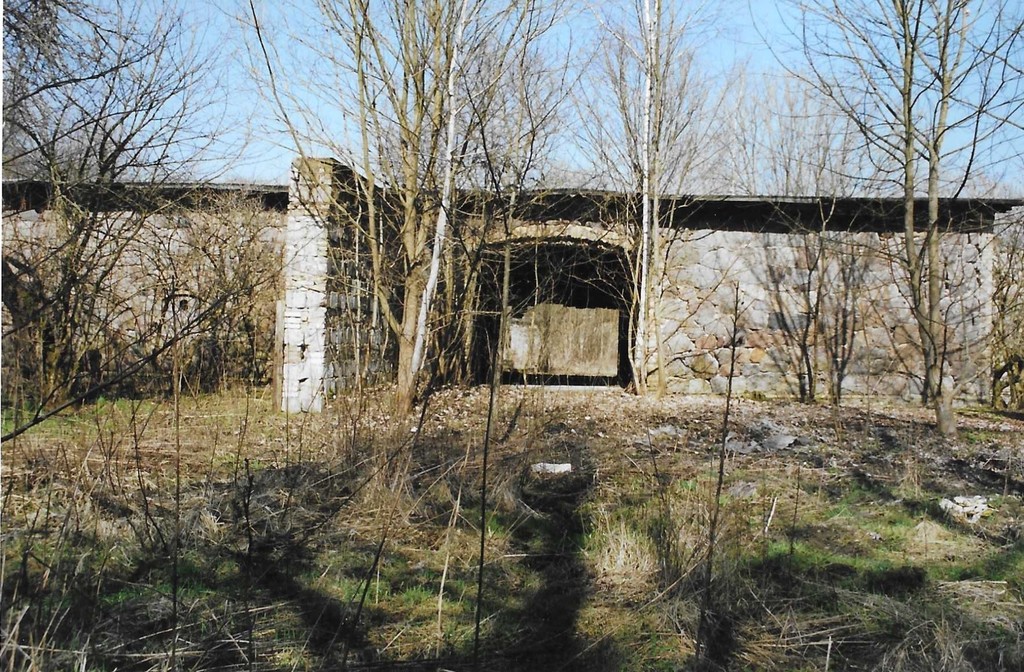
© Privatsammlung Ellen Grünwald
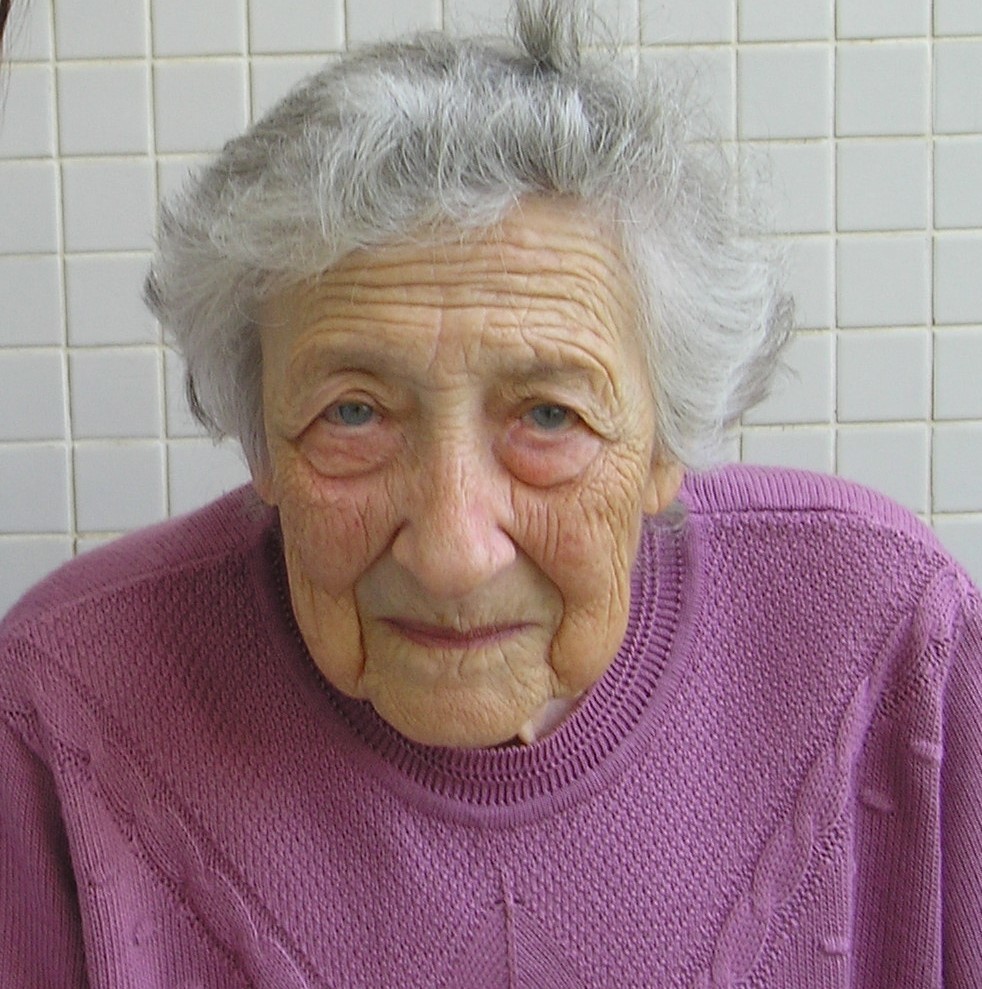
© Privatsammlung Ellen Grünwald
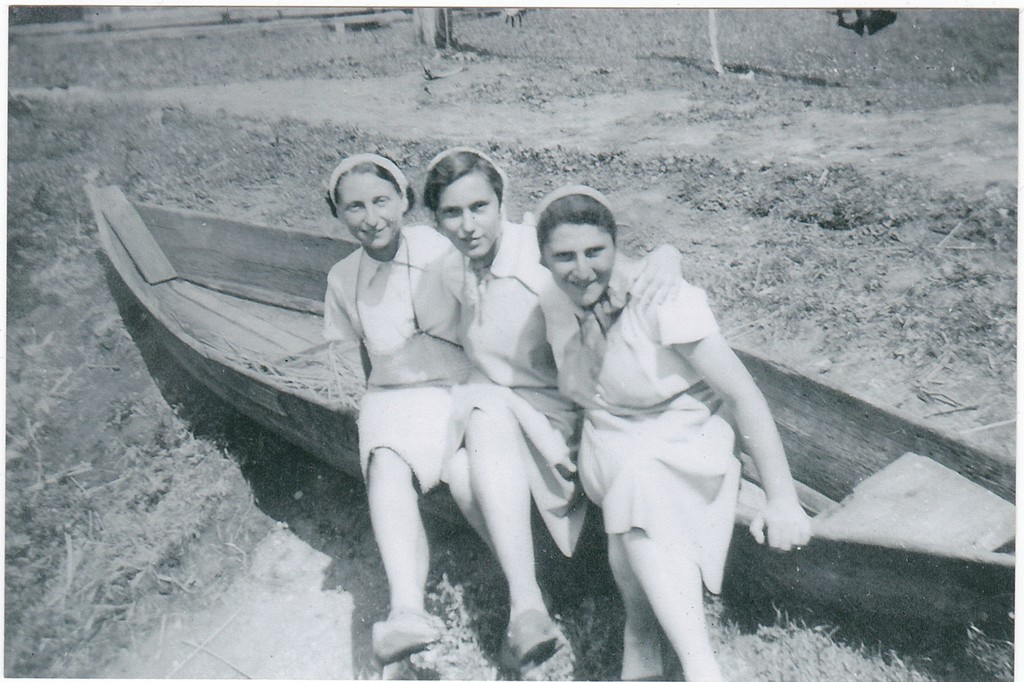
© Privatsammlung Ellen Grünwald
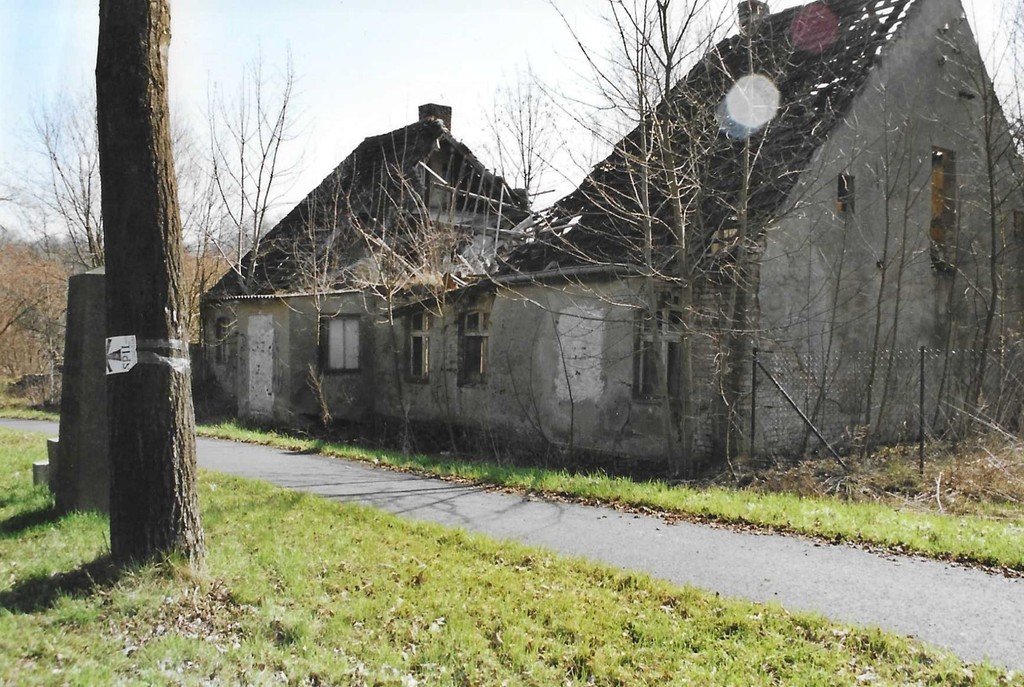
© Privatsammlung Ellen Grünwald
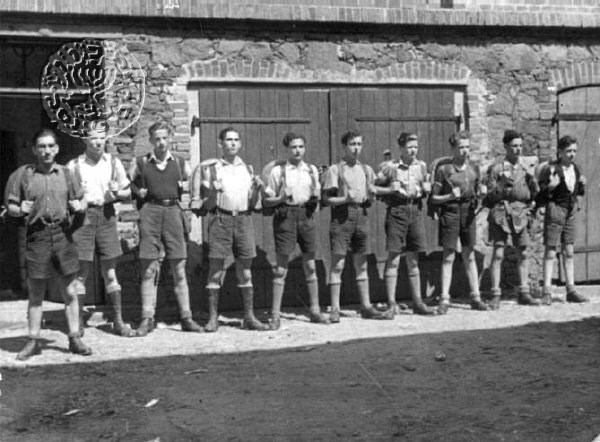
© https://en.jabotinsky.org/archive/search-archive/
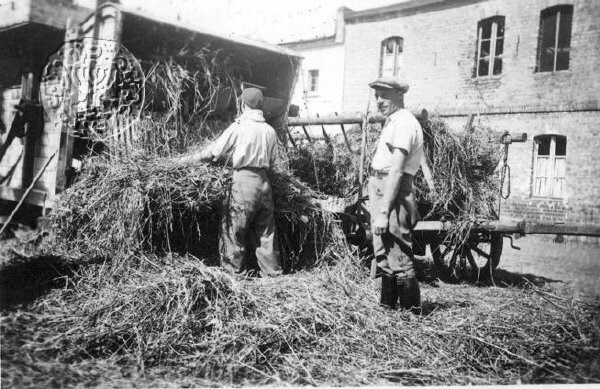
© https://en.jabotinsky.org/archive/search-archive/
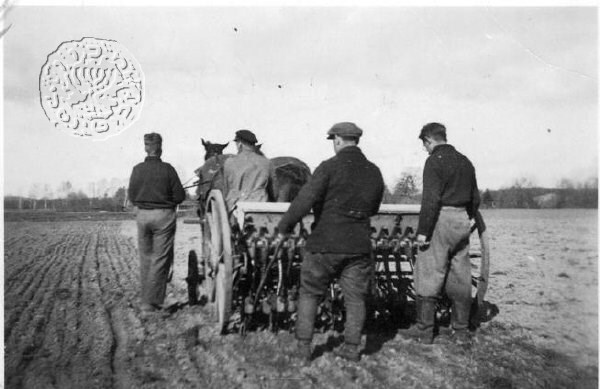
© https://en.jabotinsky.org/archive/search-archive/
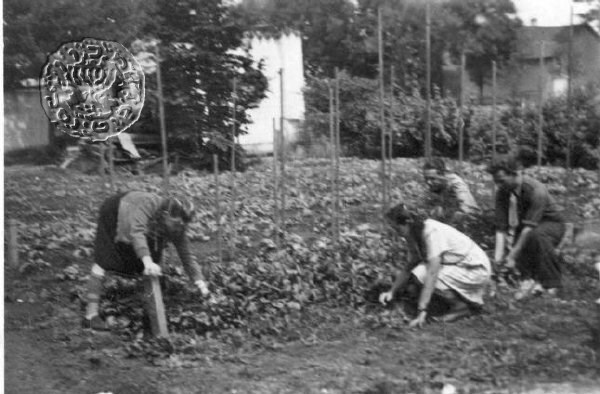
© https://en.jabotinsky.org/archive/search-archive/
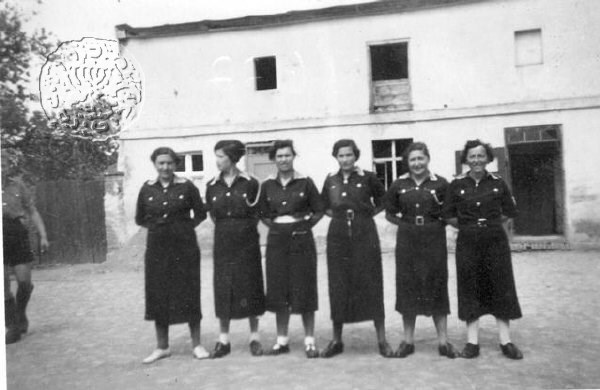
© https://en.jabotinsky.org/archive/search-archive/
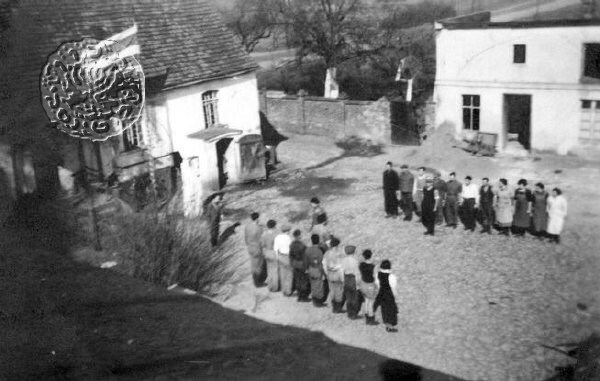
© https://en.jabotinsky.org/archive/search-archive/
- State of Conservation
- not preserved
- Related Organizations
-
Jüdisch-nationale Jugend Herzlia (Betar) (sponsor)
- Related Persons
-
Holzheim, Anna (director)Holzheim, Kurt David (director)Kirschenbaum, David (director)Lustgarten, Simon (director)Meyer, Gustav (owner)Meyer, Julius (owner)Meyer, Max (director)Sonntag, Konrad (owner)
- Sources and Notes
-
Auskunft Udo Roeschert, Mail an Ellen Grünwald vom 21.03.2022
Briefwechsel Betty Steinbock und Ellen Grünwald. Mai 2005 bis Dezember 2008; Privatarchiv Ellen Grünwald
Interview von Ellen Grünwald mit Betty Steinbock. Tel Aviv., Mai 2006; Privatarchiv Ellen Grünwald
Kreisarchiv Barnim. Hist. AE Nr. 5138
Kreisarchiv Barnim. Eberswalder Adressbuch 1926, 1929/30 und 1936 - Literature
-
Ludwig Arendt: Zur Geschichte der Eberswalder Synagogengemeinde. Eberswalde 1993.
Ellen Behring: Eberswalder Gedenkbuch für die jüdischen Opfer des Nationalsozialismus. Eberswalde: Verein für Heimatkunde Eberswalde 2008.
Herbert Fiedler; Ruth Fiedler: Hachschara. Vorbereitung auf Palästina. Schicksalswege, Schriftenreihe des Centrum Judaicum. Teetz: Hentrich & Hentrich 2004.
Hubertus Fischer: Polenzwerder – Wohnplatz mit ungewöhnlicher Geschichte. Ein jüdisches Lehrgut in Brandenburg, seine Wandlungen und Praktikanten 1937 bis 1941/42, in: Jahrbuch für Brandenburgische Landesgeschichte 71 (2020). pp. 181–231.
Ingrid Fischer: Eberswalde, in: Irene Annemarie Diekmann (ed.), Jüdisches Brandenburg. Geschichte und Gegenwart, Beiträge zur Geschichte und Kultur der Juden in Brandenburg, Mecklenburg-Vorpommern, Sachsen-Anhalt, Sachsen und Thuringen. Berlin: VBB, Verlag für Berlin-Brandenburg 2008. pp. 52–84.
Freie Universität Berlin - Zentralinstitut für sozialwissenschaftliche Forschung (ed.): Gedenkbuch Berlins der jüdischen Opfer des Nationalsozialismus. "Ihre Namen mögen nie vergessen werden!". Berlin: Edition Hentrich 1995.
Udo Roeschert: Sandkrug mit Ragöser Mühle und Polenzwerder. Eine Chronik mit Geschichten. Sandkrug 2008.
Eliyahu Kutti Salinger: "Nächstes Jahr im Kibbuz". Die chaluzische Jugendbewegung in Deutschland zwischen 1933 und 1943, Paderborner Beiträge zur politischen, wirtschaftlichen und kulturellen Weiterbildung : Neue Reihe. Paderborn: KoWAG Universität Paderborn 1998.
Recommended Citation
Ellen Grünwald, Polenzwerder, in: Hakhshara as a Place of Remembrance, December 12, 2022. <https://hachschara.juedische-geschichte-online.net/en/site/5> [February 19, 2026].
Address
Polenzwerder16225 Eberswalde